And yet, nothing really changes. That’s because no one is addressing the underlying causes of corruption in our state Capitol.
The feds’ recent bomblet alleging AT&T Illinois made a payoff to former state Rep. Edward Acevedo in order to curry favor with then-House Speaker Mike Madigan to get a bill moving predictably sent campaign press release writers into overdrive.
But the releases, as well as recent calls for state Sens. Emil Jones III and Michael Hastings to step down for questionable behavior, don’t really address the core problems. This is the tendency in Illinois. Corruption comes to light? Make a few statements, rinse, repeat and hope to move on with the status quo intact.
When the election dust settles, we need a fulsome debate and laws adopted that address the underlying problems.
AT&T Illinois, if it did indeed funnel a $22,500 consulting contract to Acevedo, was doing so to try to get Madigan to remove the brick from a piece of legislation that would allow it to end landline service.
Likewise, in the initial bombshell involving the former speaker and ComEd, that utility behemoth also is accused of being heavily involved in schemes to buy Madigan’s favor. ComEd stands accused of working to help him kill legislation his daughter wanted and of maneuvering to get him to move legislation.
Similarly, Jones has been accused of floating legislation that red-light camera companies did not like, compelling one of them to offer him a $5,000 bribe to kill it. Jones is the ninth state lawmaker to be charged by the feds in three years, according to the Chicago Tribune.
While it’s true we’re likely never going to be able to enact enough laws to kill corrupt behavior outright, calling for resignations or the return of campaign cash isn’t going to make much of a dent.
Stronger structural changes need to be enacted to lessen the incentives for corruption. Whomever is speaker of the Illinois House and president of the Illinois Senate has near complete control over what legislation moves or doesn’t. The operating rules for both chambers require supermajority votes to overrule decisions made on legislation in the rules and assignments committees the speaker and president control.
So, for example, a few years ago, 36 of the 59 Illinois senators had signed on to support legislation asking voters if they wanted to create an independent redistricting commission. But the legislation was bottled up in the assignments committee and those 36 were not about to band together to oppose the president, who also is the leader who funds many of their campaigns, helps them get on the ballot and draws them districts they can win. In the House, a supermajority of representatives rarely are going to do the same for any bill they want.
The chambers’ leaders have too much power and the threshold to overrule them just is too high. Several years ago, former U.S. Rep. Dan Lipinski was among a group pushing the idea that any amendment with the support of 20 Democrats and 20 Republicans ought to get a hearing and vote in Congress. Something along those lines could be adapted and adopted to open up the process in Illinois as well. While it might make for longer legislative sessions, it also would dramatically boost democracy and diversity in the Legislature.
Now, to their tremendous credit, both current House Speaker Emanuel “Chris” Welch and Senate President Don Harmon have allowed rules that will limit them to 10 years in those leadership roles. Still, those limits are not law. They are in rules that can be revised every two years. Writing those leader term limits into law would be an even stronger approach that would send a message that their power is on the clock.
Acevedo was a lobbyist when he took the AT&T payoff, according to federal prosecutors, as was former state Rep. Luis Arroyo when he was caught trying to bribe former state Sen. Terry Link.
Campaign mailers this season claim lawmakers are banned from lobbying their colleagues right after they leave office. That’s technically true, but the key word there is “right.” Former legislators can lobby their colleagues after waiting six months or less if they quit near the end of a General Assembly session. This is one of the weakest cooling-off periods in the nation. It needs to be at least two years.
We need more disclosure and better, searchable databases of lobbyists, consultants and their clients. And what happened to the push to create a searchable database of lobbyists who are campaign donation bundlers? If lobbyist Jane Doe is a bundler who collected $100,000 in donations for candidate John Smith, she likely has much greater influence with Smith than others do.
The pre-election Madigan headlines sizzle, but what we really need from our election winners is some post-election ethical substance.
This article originally appeared in Crain’s Chicago Business. Read this article there.
